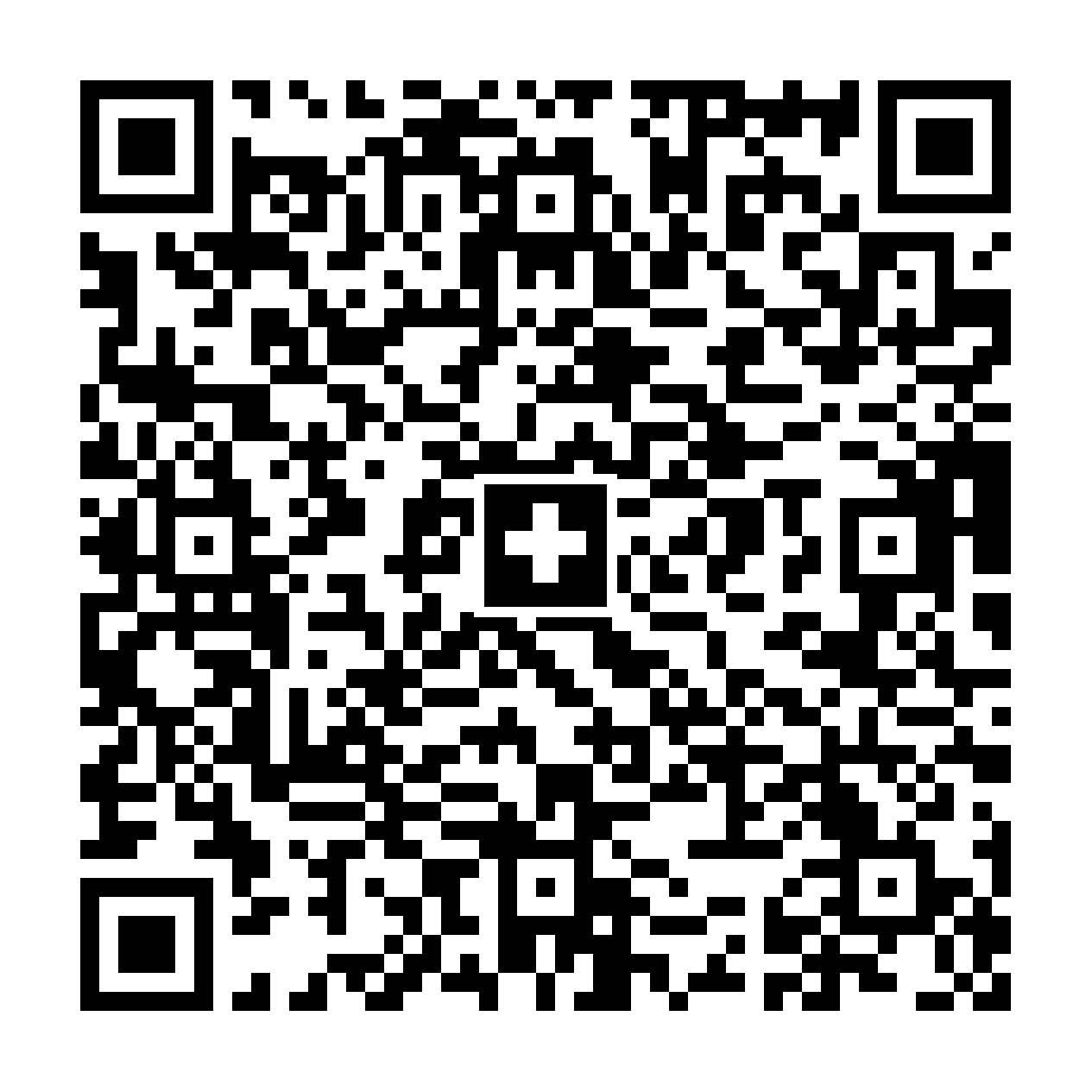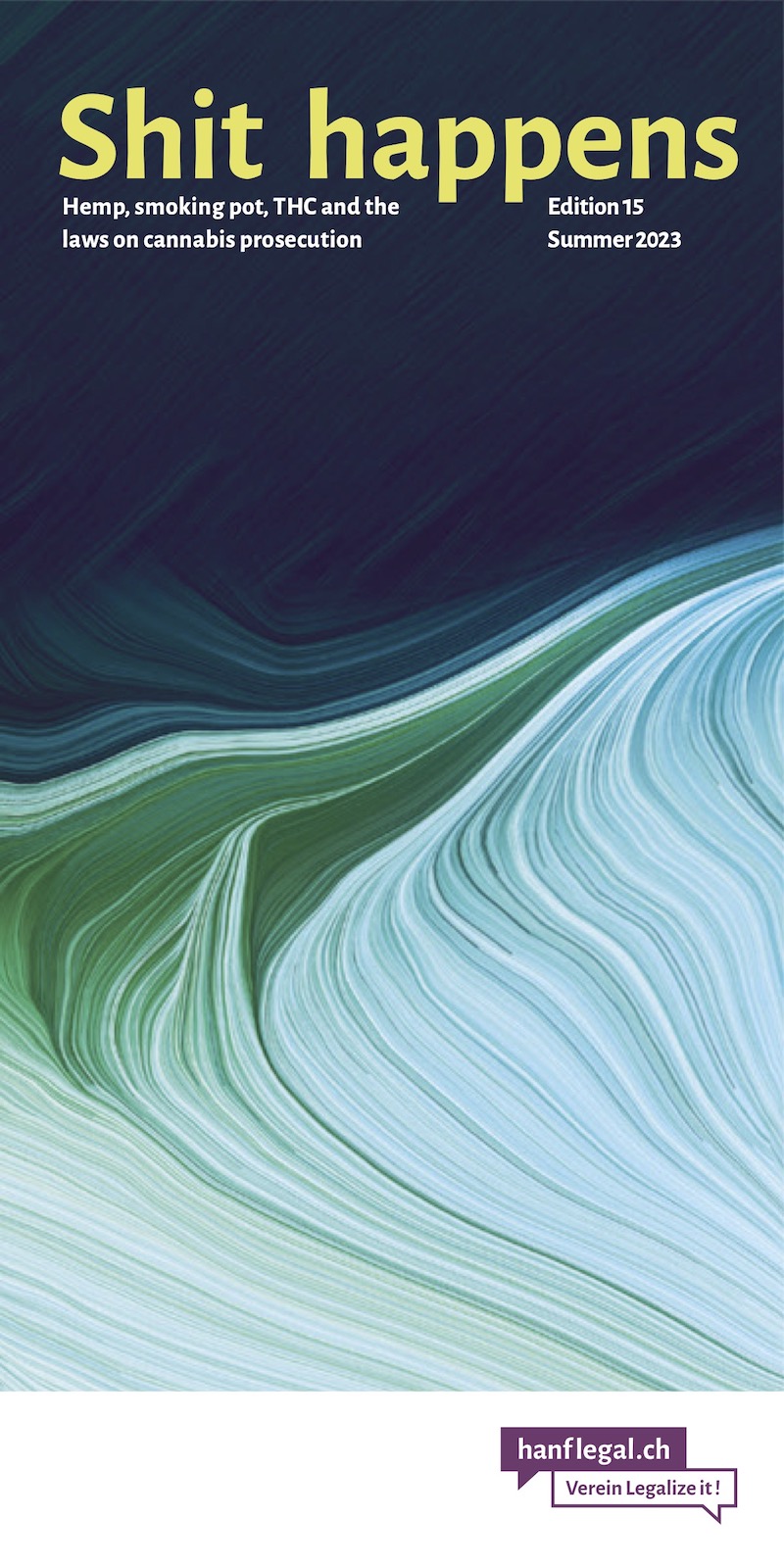- THC & Law:
Charge of possession of "hard drugs"
The narcotics law confuses again and again: the users, the police, the prosecutors, but also the journalists, the politicians and the science… It is also really a bad law! In our legal consultations we get many stories about the repression against hemp. Among them also very strange incidents. Here is the report about a really absurd police control in the canton of Aargau from the end of 2018.
“After my last exam of this semester, I walked in a good mood towards the train station. As usual, the alcohol and methadone addicts were there. Because these often pass their time there and are considered riffraff in society, although they rarely cause trouble, the police are also often on the scene. At that time, too, the police were present with six officers.
As I was about to turn into the underpass, I was stopped by a policeman to do an ID check on me. I was a bit startled and asked if anything had happened. It is not normal in a small town in the canton of Aargau to have to show one's identity card on an afternoon surrounded by six police officers.
It was just a routine ID check, I had nothing to worry about. So I showed my ID, the police officer went through my details and immediately received the notice that I had already had “a conflict with the narcotics law” once. He asked me if this was still an issue, to which I replied in the negative.
My luggage was then searched, and a cursory body check was also conducted. Result: 1.1 grams of hashish was found. In the meantime, I was surrounded by three of the six police officers.
I was quite calm, although I found it a bit uncomfortable to be frisked a bit in hiding by three police officers at the station. fixed penalty As far as I knew, the most I could expect was a fine of CHF 100. I was probably wrong - or was I? The estimated oldest policeman pointed out to me that the possession of cannabis under 10 grams is not punishable, but with hashish this is something different, because hashish is considered a hard drug. I was really shocked, asked him if he was serious. He answered in the affirmative and said that there would be a report with proceedings and criminal record entry because of this, I would have to fill out the form for the criminal complaint and the whole procedure. I asked him again if hashish is the same as heroin by law. He answered in the affirmative. I was speechless. I was asked a few more times if I had any more of this “hard drug” with me. I replied in the negative. They continued to search everything I had with me. At some point they gave up and I was allowed to leave the station, accompanied by the police officers, to the forecourt where their car was parked to fill out the form.
It was really uncomfortable - between six police officers and about the same number of junkies - to be treated like a criminal in front of the campus where I study. After bringing this up for the second time, I was allowed to go behind a building so I wouldn't have to show off in front of all the professors and fellow students. When the one policewoman prepared the form that I had to fill out with her, I had to come out of my “hiding place” again and explain in front of everyone for 10 minutes that I was not answering any questions. I think the somewhat energetic policewoman didn't like that, which she also let me feel clearly and everyone within a radius of 10 meters also hear. After the threat that I would not have to give my mobile number, but that the police would look for me and find me, I reluctantly but intimidated gave it away. It was exactly this number that I was called on four days after this incident. A cantonal police officer was on the phone. He asked me if I had made the acquaintance of his colleagues last Friday. I answered in the affirmative. He then said that they had made a mistake and explained to me the current law regarding the possession of cannabis, which also includes hashish. Because of this, I will not receive a criminal charge or a fine. However, the confiscated 1.1 grams of hashish will be destroyed, for which I should have been given a receipt. He could also send me this receipt later if I wanted, which I said yes to. The policeman asked me twice more if I really wanted this receipt, which made me think that he would rather not. I remained stubborn and received it in the meantime. I never heard an apology. On my pointing out that I had been unjustifiably embarrassed by his colleagues, he once again explained to me the law, which was irrelevant in this context, and which his six colleagues apparently all did not know.” Why the police officers came to the conclusion that hashish is a “hard drug”, we could not clarify. One possible explanation: the limit for cannabis is 1 % THC, from which point it is illegal. However, hashish is always prohibited (no matter what THC content). This is how it is defined in the corresponding ordinance.
Perhaps the discussion around the legal CBD-weed or that CBD hash is always forbidden anyway, has led to this misunderstanding. CBD hash is a rare product, but some seem to have produced it (although it may be difficult to stay below 1% THC in this hash production).
In any case, their behavior does not speak for the training of these police officers. Such claims are unprofessional and embarrassing. At least there was no fine in the end - but still very much to think about!
Support our work with a donation:
Bank transfer
Account number (IBAN):
CH02 0900 0000 8709 1354 3
Full account details
Or scan this QR code with your eBanking App (ZKB, Revolut, Postfinance, …):

Or open/share the QR code as PDF file with your eBanking App.
Credit card
Donate via credit card
Verein Legalize it!
Quellenstrasse 25
8005 Zürich
Threema ID 7NH65RBY
Don’t miss anything! Follow us on social media:
